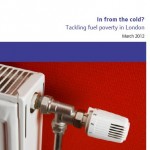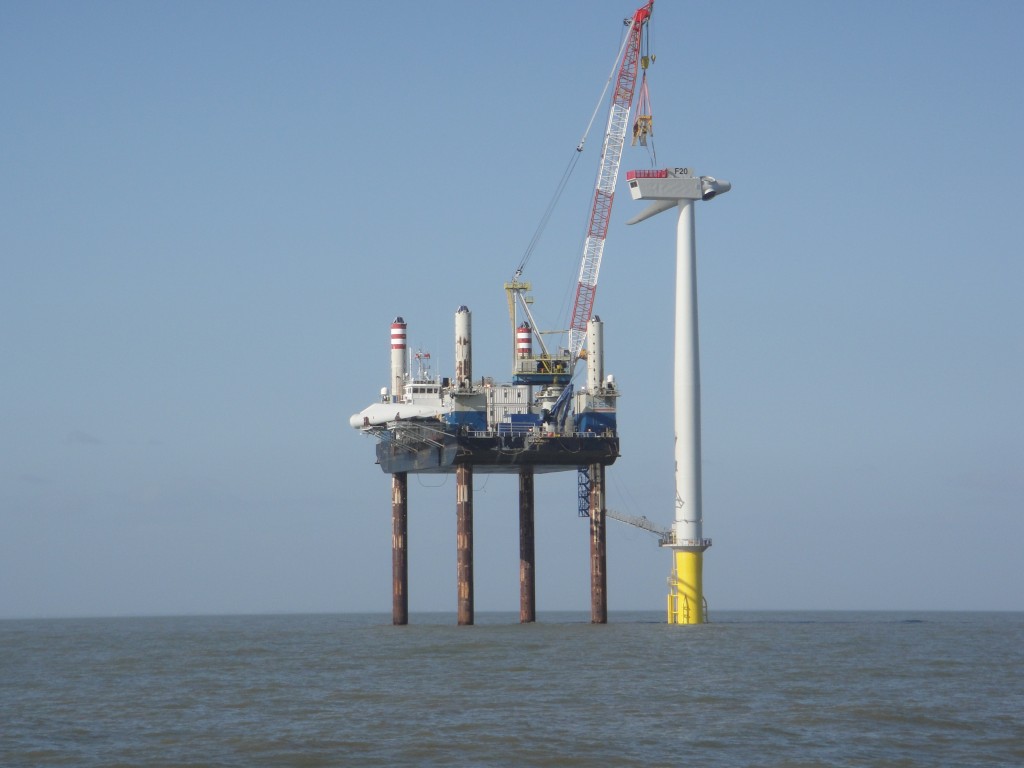Site search:
-
What’s new?
Energy for London Tags
Brent Buildings Camden Carbon Emissions CHP Cities Climate Adaptation Community Heating Community Initiatives Croydon Data DECC Decentralised Energy Distribution ECO Energy Costs Energy Efficiency Enfield FIT Fuel Poverty Funding Green Deal Hackney Haringey Housing Islington Lambeth Library Local Authorities Mayor Newham Ofgem Olympics Photovoltaics Planning RE:FIT RE:NEW Renewable Energy Retrofit Southwark Tower Hamlets Transport Waltham Forest Waste WestminsterEnergy Archives:
- February 2021 (1)
- January 2021 (15)
- December 2020 (15)
- November 2020 (9)
- October 2020 (3)
- August 2020 (5)
- July 2020 (3)
- June 2020 (4)
- April 2020 (10)
- March 2020 (5)
- February 2020 (2)
- January 2020 (3)
- October 2019 (1)
- September 2019 (4)
- August 2019 (2)
- July 2019 (1)
- August 2018 (1)
- November 2016 (8)
- October 2016 (8)
- September 2016 (2)
- August 2016 (8)
- July 2016 (14)
- April 2016 (12)
- March 2016 (16)
- February 2016 (8)
- January 2016 (4)
- December 2015 (1)
- November 2015 (1)
- October 2015 (16)
- September 2015 (3)
- June 2015 (1)
- May 2015 (1)
- April 2015 (1)
- March 2015 (1)
- February 2015 (1)
- January 2015 (1)
- December 2014 (18)
- November 2014 (4)
- August 2014 (8)
- July 2014 (7)
- June 2014 (25)
- May 2014 (8)
- April 2014 (4)
- March 2014 (12)
- February 2014 (7)
- January 2014 (13)
- December 2013 (11)
- November 2013 (15)
- October 2013 (15)
- September 2013 (18)
- August 2013 (5)
- July 2013 (20)
- June 2013 (33)
- May 2013 (8)
- April 2013 (16)
- March 2013 (25)
- February 2013 (14)
- January 2013 (20)
- December 2012 (23)
- November 2012 (23)
- October 2012 (25)
- September 2012 (14)
- July 2012 (12)
- June 2012 (43)
- May 2012 (20)
- April 2012 (8)
- March 2012 (40)
- February 2012 (39)
- January 2012 (40)
- December 2011 (22)
- November 2011 (40)
- October 2011 (33)
- September 2011 (48)
- August 2011 (40)
- July 2011 (58)
- June 2011 (41)
- May 2011 (80)
- April 2011 (38)
- March 2011 (33)
- February 2011 (25)
- January 2011 (24)
- December 2010 (3)
- November 2010 (7)
- October 2010 (6)
- September 2010 (7)
- August 2010 (1)
- July 2010 (2)
- June 2010 (4)
- May 2010 (1)
- March 2010 (3)
- February 2010 (3)
- December 2009 (5)
- November 2009 (2)
- October 2009 (3)
- July 2009 (3)
- June 2009 (1)
- April 2009 (1)
- March 2009 (1)
- February 2009 (1)
- January 2009 (1)
- December 2008 (2)
- October 2008 (1)
- September 2008 (1)
- July 2008 (1)
- March 2008 (2)
- January 2008 (2)
- October 2007 (1)
- September 2007 (3)
- July 2007 (1)
- March 2007 (1)
- February 2007 (3)
- November 2006 (3)
- August 2006 (1)
- February 2006 (1)
- May 2005 (1)
- February 2004 (1)
Tag Archives: London Assembly
Assembly calls for action to cut fuel bills for 1.2 million London homes
5 March 2014: London Assembly press release calling “on Mayor Boris Johnson to press Whitehall to reverse cuts to programmes designed to reduce energy consumption in the capital. A motion agreed at a today’s Assembly meeting urges the Mayor to lobby the government to rethink reductions to the Energy Company Obligation (ECO) and a two year extension to the time limit for energy companies to fulfil the requirements. The Mayor should also lobby ministers to set out a national infrastructure project that will help to cut fuel bills for 1.2 million London homes by 2015.” Read the news release here.
Also today, the government released their consultation on the revised changes to ECO.
London carbon targets to be missed by three quarters?
February 2014: At last week’s Mayoral Question Time, Green Party London Assembly member Jenny Jones questioned the Mayor over his retrofitting CO2 targets – which has been posted online and can be viewed here.
Assembly Member Jones states that by the end of the Mayor’s term of office, his CO2 reduction targets, as set out in London’s Climate Change Mitigation and Energy Strategy, will have been missed by three-quarters.
In response, the Mayor said that her comments should not be so dismissive: that he had protected the budgets for his retrofitting programme, over 90,000 homes had been retrofitted despite London’s population growing by 600,000 and London’s economy going ‘gang busters’, and that a 20% reduction in CO2 savings had been achieved since 2008. Ms Jones however promised to write to the Mayor setting out her analysis on the slow pace of London’s carbon reduction progress.
“The Mayor’s promise of clean and cheap energy from fracking is ‘fool’s gold’”
16 September 2013: News release from London Assembly member, Jenny Jones of the Green Party, in response to the Mayor’s article in The Sun this weekend, which called on Government to accelerate the use of new nuclear power and exploiting shale gas resources via fracking. Ms Jones release ‘The Mayor’s promise of clean and cheap energy from fracking is ‘fool’s gold'” states:
“Instead of putting enough resources into measures such as home insulation that will cut our energy demand, and into renewables such as wind turbines, the Mayor is gambling our future by backing risky technologies such as nuclear and fracking.”
A further response has been posted by online news journal Carbon Brief. Echoing comments in the earlier post on this site on the timeframe to bring in new nuclear and fracking sites, Carbon Brief provides a detailed response to the Mayor’s vision setting out that “Boris’s energy policy quick fix will take a decade to kick in“.
How will the £100m London Green fund benefit the capital?
9 January 2013: London Assembly news release “The London Assembly will tomorrow question representatives of the Greater London Authority, Green Fund Investment Board and fund managers about the £100m London Green Fund (LGF), which was set up to invest in waste and energy efficiency programmes.”
Tomorrow’s meeting will take place on Thursday, 10 January 2013 from 10am in the Chamber at City Hall. Members of the public are invited to attend. The meeting can also be viewed via webcast.
City Hall Fuel Poverty and Energy Efficiency session
5 November 2012: The London Assembly Health and Environment Committee are to hold a discussion session with a number of invited guests at 10am on Thursday 8 November at City Hall. Members of the public are able to attend these meetings. Amongst a range of issues, the meeting will consider the outputs of the Committee’s inquiry into fuel poverty carried out in 2011/12 and published in March of this year – In From the Cold.
Full details of the Commitee’s meeting are posted here, including a discussion paper for the session, which sets out that issues under consideration will include how:
- The GLA should establish criteria for areas to be selected for the next tranche of RE:NEW funding. This extension of the programme should prioritise households likely to be in severe fuel poverty.
- The GLA should in consultation with the energy companies and local authorities, develop an affordable warmth strategy for London.
A number of expert guests and stakeholders have been invited to participate in the discussion, including:
- Richard Blakeway, Deputy Mayor for Housing, Land and Property, and officers from the GLA;
- Amy Ingham, Fuel Poverty and Smart Meters team, Department for Energy and Climate Change;
- Jo Gill, Energy Efficiency Co-ordinator, LB Hillingdon and Vice-Chair of the inter-borough London Carbon Action Network;
- Christine Tate, Head of Corporate Social Responsibility, and Kelly Greer, Energy Solutions Manager, British Gas; and
- A representative from EDF Energy.
London Assembly visit London Array
March 2012: The London Array is a largest offshore wind development in the world and is currently being constructed in the Thames Estuary 20km off the north Kent coast at Gravney. Whilst obviously not in London, the presence of such a large renewable project – 1,000MW of electricity generation capacity – in the south will strongly help to decarbonise the local and wider electricity grid, which in time will help reduce the London’s carbon impact.
London Assembly Member Murad Qureshi, also Chair of the Environment Committee at City Hall, has kindly provided for energy for london a short account and photos of a recent visit to the project:
“On a clear blue sky day in the Thames Estuary last week, members of the Environment Committee were able to see phase one of London Array windfarm out in sea. It is approximately 100 km from City Hall with 175 turbines larger then the Ferris Wheel along the South Bank being constructed.
During the afternoon, we saw the turbines being piled into the sea; the arms of the windmills being put up as well as the cable to the shore being land so as the renewable energy can come to shore.
With completion of phase 1 due by December 2012, it was certainly a good day to go and see for ourselves how a renewable energy scheme like London Array can help plug the energy gap in London for 472,500 homes.”
 Further information at http://www.londonarray.com/
Further information at http://www.londonarray.com/
Number of households affected by fuel poverty in London is continuing to rise
 13 March 2012: The London Assembly Health and Public Services Committee have published their conclusions from a lengthy study looking at the incidence and causes of fuel poverty in the capital. The report warns that “despite efforts by the government, the Mayor and a range of targeted initiatives and incentives, the number of households affected by fuel poverty in London is continuing to rise.”
13 March 2012: The London Assembly Health and Public Services Committee have published their conclusions from a lengthy study looking at the incidence and causes of fuel poverty in the capital. The report warns that “despite efforts by the government, the Mayor and a range of targeted initiatives and incentives, the number of households affected by fuel poverty in London is continuing to rise.”
The report ‘In from the cold’ makes a series of recommendations that the Committee state could help improve the situation for the “nearly one in five London households who struggle to heat their homes and pay their energy bills.”
The Committee state that unless action is taken to tackle the problem, long-term energy price rises will continue to push more people into fuel poverty: the Greater London Authority’s (GLA) own projections show a worst case scenario that almost a quarter of households will be in fuel poverty by next year.
View the press announcement of the report here. The report can be viewed here and a new fuel poverty mapping tool using open public data to help delivery organisations identify areas in London most likely to contain households at risk of fuel poverty and offer them targeted support can be downloaded from the London datastore here. Written evidence to the committee can be downloaded here.
Energy Companies Comment on Fuel Poverty in London
September 2011: The London Assembly’s Health and Public Services Committee held an evidence session last week with energy companies and others as part of their inquiry into fuel poverty in London. Witnesses included:
- British Gas
- EDF Energy
- London Warm Zones
- London Councils; and
- The Department of Energy and Climate Change (DECC).
The full webcast of the session can be viewed here (see Tuesday 13 September link).
Fuel Poverty in London: Evidence Session
September 2011: The London Assembly Health and Public Services Committee will question energy companies, energy efficiency suppliers and national and local government about how fuel poverty can be eradicated in the capital at meeting on Tuesday, 13 September at 3pm. This is part of their ongoing inquiry into fuel poverty in London. The Committee’s meeting is open to the public – details with regard to attending are here. Energy for London was part of a coalition of organisations who submitted evidence to the Committee last month.
A new single ‘London Environment Strategy’
5 September 2011: The Localism Bill continues its passage through the House of Lords today, moving to Report Stage. Amongst the many changes proposed in the Bill there is a more modest, but important, clause in the Bill regarding the six environment strategies that the Mayor is currently statutorily required to produce.
Clause 212 of the latest version of the Bill calls for the Mayor to produce a ‘London Environment Strategy’ which “must contain a general assessment by the Mayor of the environment in Greater London, so far as relevant to the functions ofthe Authority or of the Mayor” containing “provisions dealing with the Mayor’s policies and proposals in relation to each of the following matters in relation to Greater London—(a) biodiversity;(b) municipal waste management;(c) climate change mitigation and energy;(d) adaptation to climate change;(e) air quality; and(f) ambient noise.”
Importantly, the Bill goes on to repeal the duty on the Mayor to publish the six separate environmental strategies. Hence it is proposed that all material/policies contained within these six individual strategies will be consolidated into the new single London Environment Strategy. The Communities and Local Government (CLG) Secretary of State may give guidance to the Mayor on the content and preparation of this new strategy and may also give the Mayor direction as to its policies. Also proposed in the Bill is a new power for the London Assembly which is the ability to reject any of the Mayor’s statutory strategies if a two-thirds majority of members vote against publication.
Despite the changes being proposed in the Bill the Mayor stated back in June that the climate change mitigation and energy strategy, the climate change adaptation strategy, the municipal waste strategy – and two further non-statutory environment strategies on business waste and water – all of which are at draft stage – will all be published by the end of the calendar year.
Alleviating Fuel Poverty in London
August 2011: A joint submission from a number of organisations – including energy for london – has recently been made to the London Assembly’s Health and Public Services Committee’s inquiry into ‘Alleviating Fuel Poverty in London‘. An initial oral evidence session took place on 22nd June (the transcript of which can be downloaded here) and a further evidence session, which is open to the public to observe, is to take place at City Hall on 13 September 2011 at 3pm.
Mayor’s home energy programme slashed by three quarters
August 2011: News release from London Assembly Member Murad Qureshi responding to the Mayor’s RE:NEW programme announcement which states:
“In 2009 the mayor promised his programme would treat 200,000 homes with easy energy efficiency measures like low energy lightbulbs, and offer advice and support for more complex things like roof insulation, but the new target is just 55,000 homes – or a mere 1.7% of London’s 3.3 million homes.” Full news release here.



